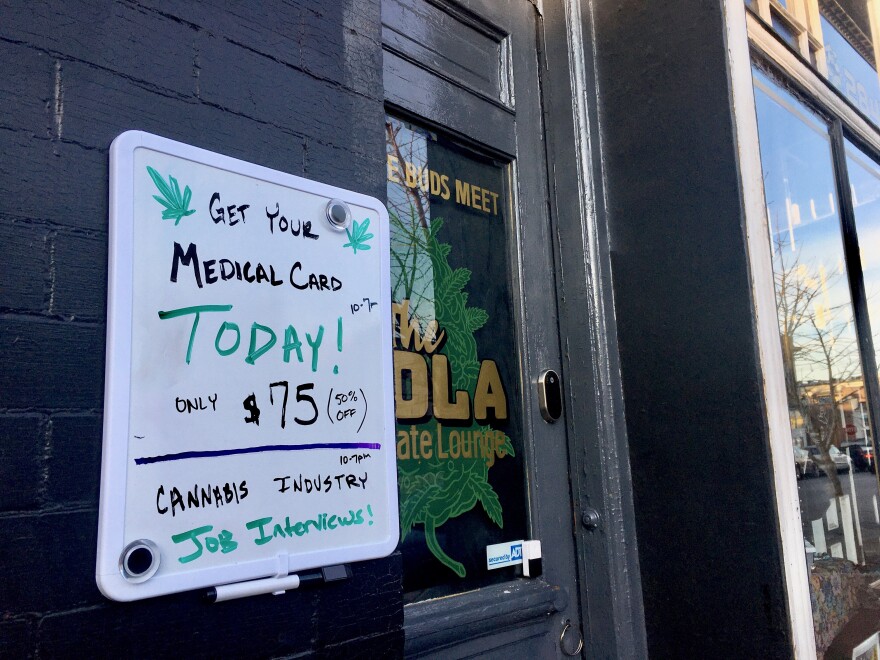Missourians can possess cannabis after a law legalizing recreational marijuana took effect this week.
But even though adults can legally use marijuana, dispensary operators say some marijuana users may choose to keep their medical cards, which will allow them to take advantage of lower taxes and other benefits over customers who use marijuana recreationally.
Missourians voted in November to legalize recreational marijuana, and on Thursday it became legal to possess in the state. But Missouri customers will not be able to buy it in Missouri businesses until later this winter, regulators said.
Medical marijuana has been legal in Missouri since 2018. There are more than 200,000 people in the state with an active medical marijuana license.
According to Missouri Department of Health and Senior Services,medical card holders will still be able to benefit from lower tax rates than recreational users when they buy marijuana. Recreational marijuana will be taxed at 6%, with municipalities allowed to increase that percentage. Medical users will continue to pay a 4% tax on their purchase.
Medical users or their caregivers also can possess six ounces of marijuana in a 30-day period. That’s twice the amount allowed to recreational users.
Dispensaries may also decide to offer benefits, including subsidies or quicker services, to patients with medical licenses, said Jay Patel, co-director at Nature Med, which operates five dispensaries across the state. Nature Med operators plan to serve medical customers before recreational ones, he said.
“[We] would never want to forget the people who started it all for us; that's why we're here,” Patel said. “So whenever that transition or that conversion happens, we don't want to forget the individuals who helped start the program in the first place.”
Medical dispensaries can now apply for recreational sale licenses. The state has 60 days to process those applications.
“A lot of people who are consumers, even if they're buying in an adult-use market, oftentimes are using the products for medical purposes,” said Nicholas Rinella, CEO of Hippos Cannabis, a company that operates dispensaries in Chesterfield, Springfield and Columbia. “So we're just really increasing the access for everybody.”
Advocates for the new law told state lawmakers that theyhope legalization will decrease the price of marijuana for medical patients.
Dispensary owners said that’s been true in other states after they legalized recreational use.
“We are already lower than in most states,” Rinella said. “And with increased competition, and increased production, you know, simple supply and demand at a certain rate, prices will level out and they'll remain affordable.”






